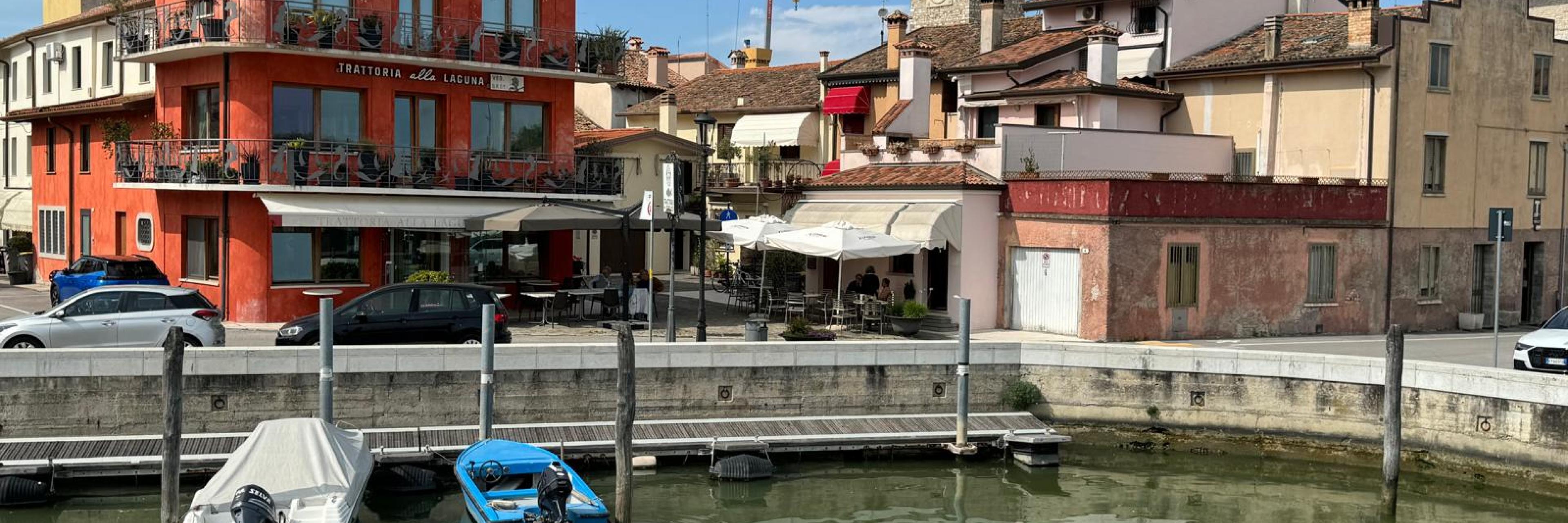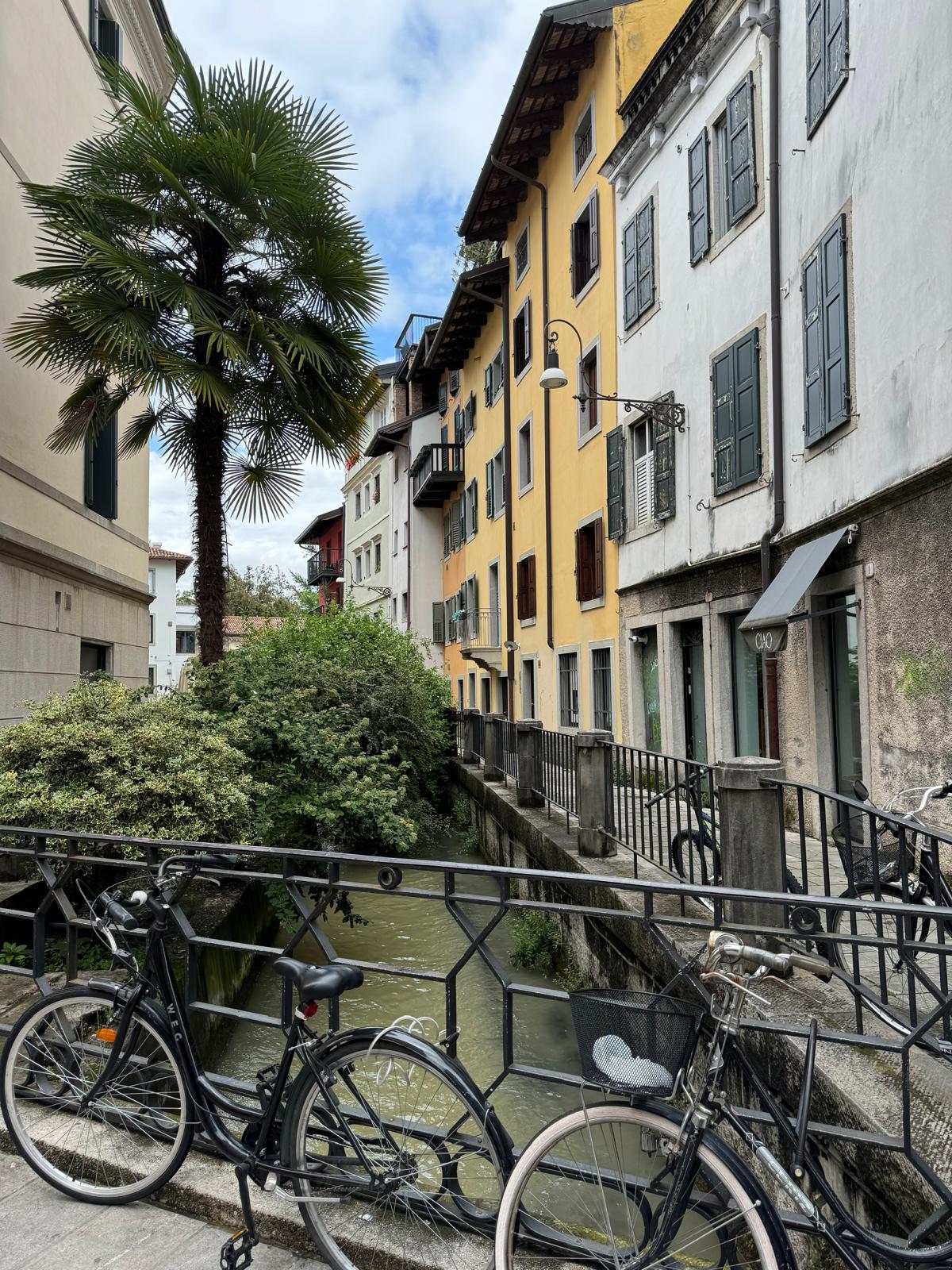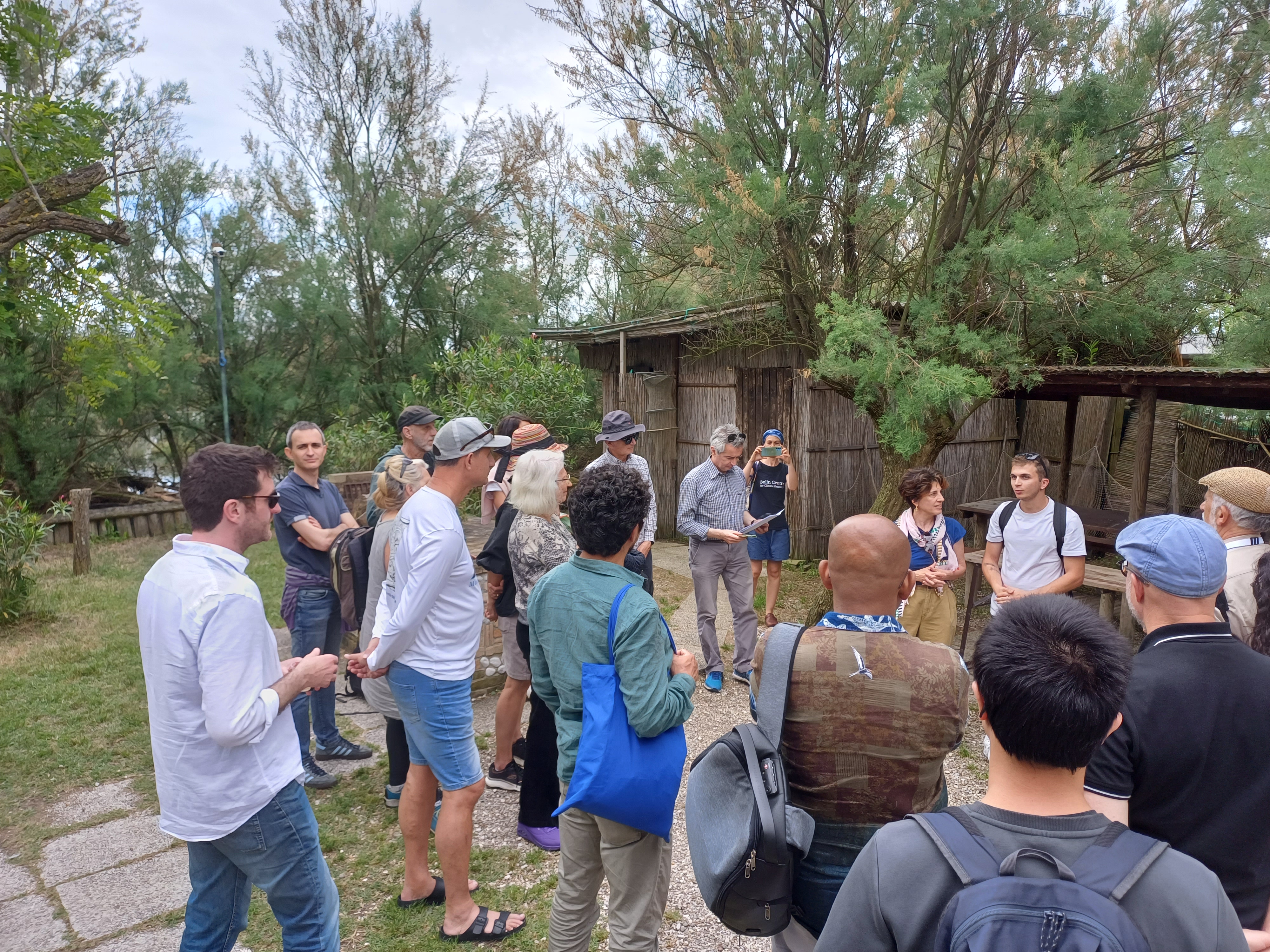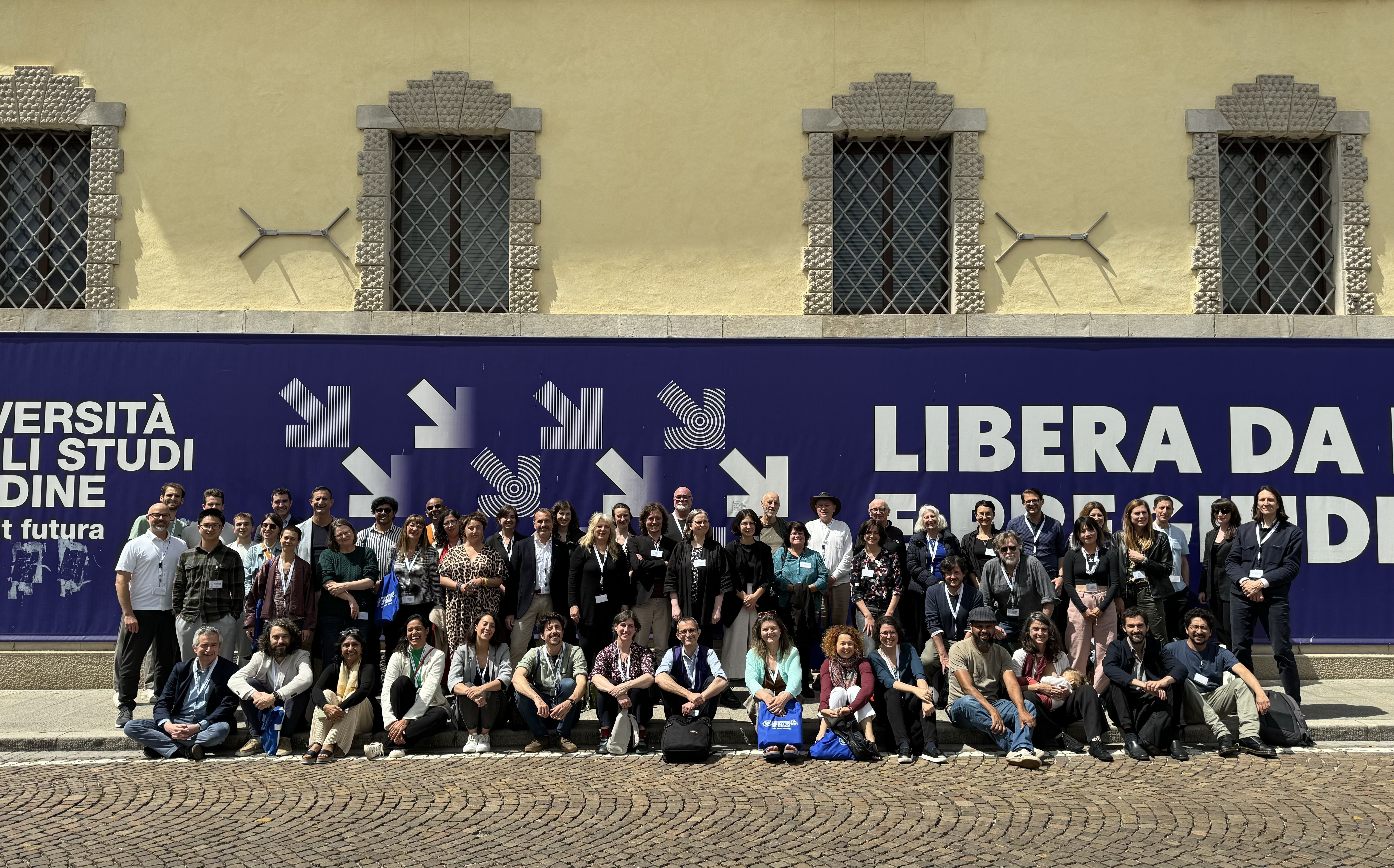
Conversations on Inland Waterscapes: Bridging Nature, Culture, and Society – Global Perspectives from Udine, May 2024
Seventy scholars from different parts of the world as well as different disciplines came together in Italy’s Udine from May 22 to 25 in 2024 for The International Conference on Inland Waterscapes: Nature, Society and Culture in Hydrography. They explored the multifaceted significance and aspects of inland waterscapes as visible and intangible infrastructural networks. The Conference, organized by the University of Udine with the support of the River Cities Network - International Institute for Asian Studies and the Friuli Venezia Giulia Region, in cooperation with the Global Network of Water Museums, Shima Journal and Ca’ Foscari University Venice, proposed a flat ontology of watery materialities, infrastructures, policies, narratives and everyday experiences. With this overarching theme, forty researches were presented, covering a broad range of topics, geographical areas (from Mexico to New Zealand, from very local examples of European waterscapes, to large iconic rivers as Ganga and Nile), theoretical and methodological approaches, with the same focus on inland waterscapes understanding and enhancement.
By Lisa Zecchin & Anna Brusarosco
Water Studies: Relationships and Challenges
The Conference kicked off with warm greetings from some key figures, including Roberto Pinton, Rector of the University of Udine, Paul Rabé, Coordinator of the River Cities Network, Marco Lipizer, Representative of the Friuli Venezia Giulia Region, and Brunello Lotti, Representative of the Department of languages and literatures, communication, education and society of the University of Udine.
Francesco Visentin, coordinator of the Scientific Advisory Board, opened the Conference highlighting the interdisciplinary nature of the Conference and the growing academic interest in water studies, particularly in the present context of climate change. Following Visentin, Veronica Strang (chaired by Maarja Kaaristo) held a keynote speech titled "A City Built With Water: Elemental Co-creativity in the Venetian Lagoon” presenting findings from a research project conducted at Ca’ Foscari’s New Institute - Centre for Environmental Humanities (NICHE) in 2023. The findings focused on Venice’s social and material relationships with water, aimed at challenging anthropocentric positionality in relation to the environment, and to explore non-human agency and its co-creative role.

Water Mobility
Understandably, with the encompassing the theme of the Conference, other major topics such as cultural heritage of waterscapes, community interactions with water, the socio-political aspects of water management in the climate crisis and the waterfront regeneration and planning, were also brought to the table. Notably, discussions on the links between water and memory and sense of place building, the hydrosocial cycle, the legal status of water bodies, the role of water in urban planning.
Francesco Vallerani (chaired by Rabé) held a keynote titled "Water Mobility Heritage and Fluvial Adventures: The Enchantment of Waterscapes as Environmental Apprenticeship", providing insights into the experiential dimensions of water landscapes. Vallerani highlighted the relationship between water mobility and inland waterscapes as one of the most effective interpretative tools for understanding and directly experiencing hydrophilic emotions. Thus, navigating than simply following the waterways along its bank pathways can improve the process of watery apprenticeship, allowing the rediscovery of the complexity of waterscapes and enhancing one’s own affection for water. Above all, discussions on water mobility underscored the critical importance of water both in shaping human experiences and environmental policies and practices.

Indigineous Perspectives
But not only water mobility was a key component of the Conference, other sessions focused on hydropolitics and waterfront regeneration. Key presentations explored the impacts of climate change on water resources and related risks, community-led water conservation and management efforts, and the integration of indigenous knowledge in water management practices.
Ana De Francesco's (chaired by Philip Hayward) keynote, "From Ancestral Pathways to Climate Emergency: The Centrality of Rivers in an Amazonian Perspective", highlighted the vital role of rivers in indigenous cultures on one hand, and the importance of riverine people for the preservation of the biocultural heritage of the Amazon and for coping with ecological disasters and climate emergency, on the other hand. De Francesco’s lecture brought her long-term experience in working with the communities of the Brazilian Xingu River basin, highlighting the relevance of the engaged research.
Concluding the Conference in the Second Largest Lagoon of Italy
The International Conference on Inland Waterscapes successfully highlighted the nexus among nature, culture, and society, conveyed by inland waterscapes. It emphasized the need for multidisciplinary approaches to address the challenges posed by climate change and the socio-political complexities of water management. The conference not only facilitated the exchange of knowledge but also fostered new collaborations, also with civic society, and research initiatives aimed at promoting sustainable and inclusive water practices.
The Conference concluded with an optional field trip to the River Stella and Marano Lagoon, the second largest lagoon in Italy and an example of Common Pool Resources System (CPRs), where goods are collectively shared by a community following common law. While the trip presented a unique environmental and cultural heritage of these inland waterscapes and a visit to a “casone” (traditional fisher house), it mainly indicated a tangible connection to the several themes discussed during the conference.

Paul Rabé, June 2024.